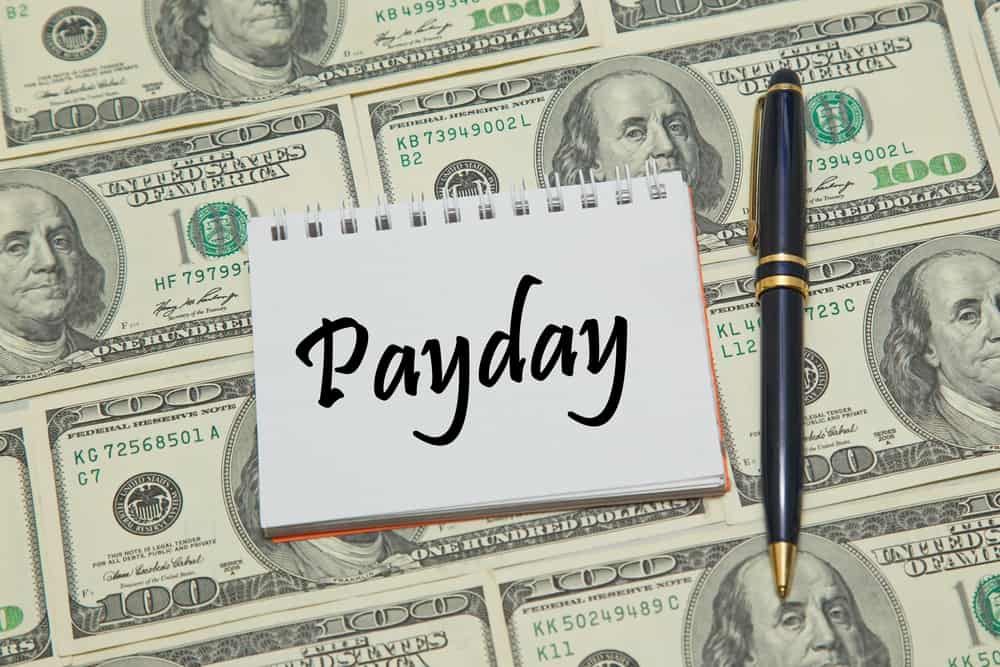Payday loans are short-term, unsecured loans that offer borrowers the opportunity to borrow up to $1,000. They are generally repaid on the borrower’s next payday with a finance charge of approximately $15 per $100 borrowed. The interest rate for these loans is high, as it can be as much as 391%, but it’s not surprising considering how quickly the loan is paid back. No credit check payday loans are usually small amounts of money given to people who do not have enough funds to cover an emergency expense.
The people who take payday loans should be aware that the interest rates on these loans can be extremely high. The loan is often due by the borrower’s next payday, but some lenders allow payment over a more extended period of time. A borrower’s creditworthiness does not affect whether or not they qualify for a payday loan. A payday loan is usually the last option when you are left with nothing to pay your bills, rent, or buy groceries.

What is Payday Loan?
A payday loan is a small, short-term loan that you can receive quickly and easily. You can get one by going to your local payday lending store and filling out an application. The process of getting a payday loan will vary depending on where you live and what type of lender you use, but it should take no more than 15 minutes from start to finish.
Why People Choose Payday Loans?
You may wonder why people choose to do this when they know it may worsen their situation in the long run. Unfortunately, when you find yourself in a terrible financial situation, sometimes the only option available is a payday loan, even though these loans come. The most important thing to keep in mind is that a payday loan is a type of cash advance. If you do not have a reliable source of income, it can be tough to get one for yourself.
Private lenders and finance companies normally grant this type of loan on the condition that you will be able to pay back the principal amount as well as interest. The loans are usually paid on your next paycheck, hence their name. For those who don’t like this feature, some payday lenders offer installment payments instead. They will give out loans and then make monthly payments with interest for up to 3 years.
An online application process and low credit score requirements make it possible for many people to qualify and apply for these loans. However, for some people using payday loans, it is possible to borrow money and pay it back in a short time. The borrower can borrow from $100 to $1,000.
Types of Payday Loans
There are two types of payday loans given by banks and endorsed by state governments or given by an independent company. If you need a loan within 14 days, then apply for a bank loan, while if you need funds for more than 14 days, then apply for an independent company’s loan.
- So, you are in need of money to help you get through the month. There are various ways to borrow money, but not all of them are safe. For example, some will require you to put up your car as collateral or have a good credit score. Payday loans are ideal for people who don’t have these requirements and want something easier.
- A payday loan is a short-term loan given out by the company to the borrower for no more than $500. The borrower must repay the loan within two weeks, or they incur fines that can be expensive. In addition, the loan usually carries high interest rates, which can further complicate things for the person borrowing money if they can’t pay it back on time.
- Payday loans are the unsecured loan that is intended to provide cash in an emergency. Usually, people who can’t qualify for a bank loan and don’t have the credit score required for other loans can get a payday loan. Payday loans are not only helpful to those who need them at the time, but they also help people build or rebuild their credit. People should take out a payday loan if they cannot pay it back when it is due.
Payday loans provide a convenient way to meet an emergency expense. It will lessen the impact on your budget and help to avoid a debt trap.

